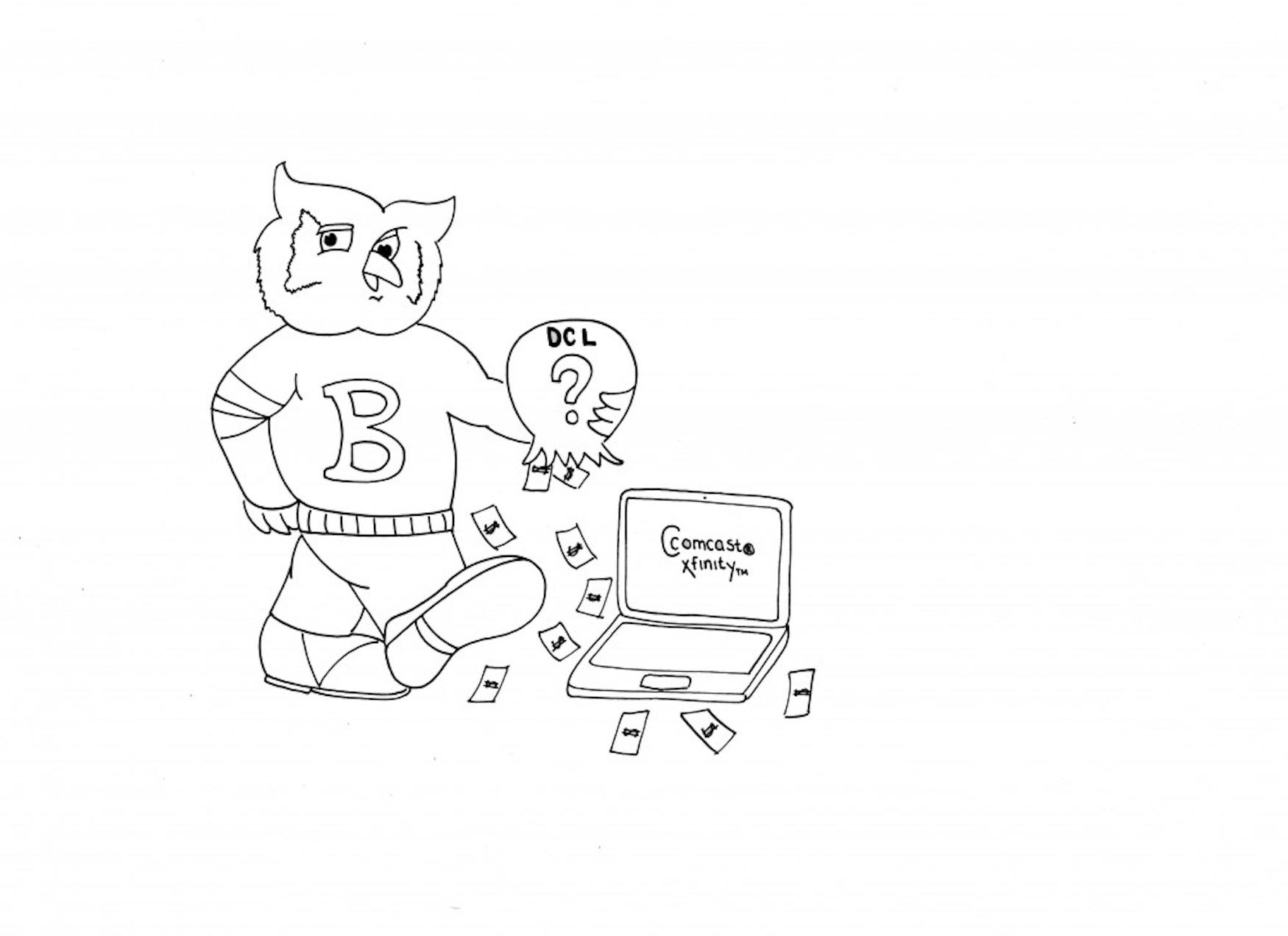EDITORIAL: Increase transparency in Xfinity deal
On Sept. 11, Director of the Department of Community Living Tim Touchette sent an email out to the student body announcing that DCL had purchased Xfinity on Campus. The service allows students to access basic cable directly from their laptops, phones or televisions for free by logging in with their UNet Identification numbers. Previously, students could access cable by plugging in their television externally through the University’s subscription to Comcast Analog.
This board calls for DCL to be more transparent concerning the financials of this new endeavor. Touchette declined to share information regarding the comparative cost of Xfinity to Comcast Analog in an email to the Justice, and the cost of this massive new service has not been displayed elsewhere by the administration.
While it may be a convenient source of entertainment for students to have access to cable channels across multiple devices, it is far from a necessary allocation of funds. Previous television services have been completely adequate for student needs, and many students use or prefer their own online sources for television or film, such as YouTube or Netflix. There is no pressing need for the University to provide this service to students, particularly as national dialogue around technology and education has vocally decried students watching television on their computers rather than taking notes in classes.
It is, of course, unclear whether student tuition dollars purchased this new program. Especially as tuition continues to steadily climb and adjunct faculty consider unionization for, among other causes, low pay, it is necessary for a socially just university to be transparent with its students about what precisely their dollars are paying for. Reports continue across campus of students who still lack basic furniture. James Gray wrote in an email to the student body on Aug. 31 that major renovations will be necessary to maintain even the most iconic elements of the Usen Castle, though renovations have yet to even begin. Discounting the possibility that the new Xfinity service was paid via a grant or specific donation, surely there are better uses of the University’s limited funds, the examples noted above being only two of many. If, however, student tuition dollars are not providing for this amenity, this would be relevant information for the student body to know to set their minds at ease, not to mention an incentive to use the new program: students are not even paying for it.
While DCL has undertaken measures to perhaps add to the Brandeis community’s quality of living, this board believes that it is necessary for the department to explain the specific implementation of the program. As students whose tuition dollars directly impact the University’s financial status, this board believes that students deserve clarity with the University’s fiscal decision-making process.




Please note All comments are eligible for publication in The Justice.